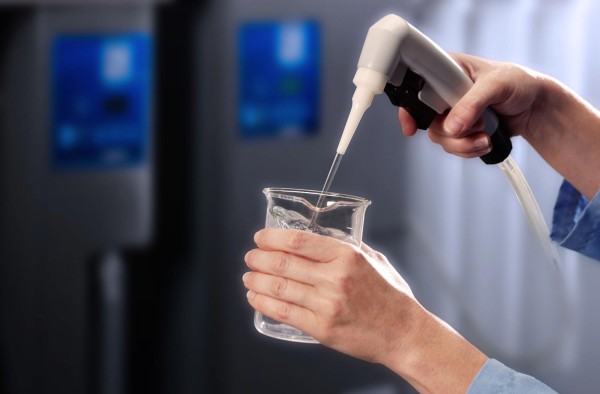It's better than tap water, but not as good as distilled water
The OP's clean room ultrapure water is likely some of the best water on the planet. Overkill, and perfectly good for use in radiators and batteries.
While the precise Ultrapure water production process depends on its intended end use, at a minimum it would have two passes through an RO system, degassifed under vacuum, possibly UV treated for organics destruction, followed by polishing in deionizer beds or electro deionizer system. The end product is so "clean" that electrically conductive (scale producing) ions have been reduced to levels that are unmeasurable by a conductivity meter. Any remaining contaminants are measured in parts per billion.
The "deionized" water I am familiar with is produced by passing the water through series of columns or tanks filled with deionizing resins. The end result is close to the same quality as the two pass RO/polisher system, but is much more costly per gallon. This method would be used for much smaller scale operations where the cost of a RO plant isn't justified, such as antifreeze blending.
According to the measurements I've made on distilled water and "RO purified" water bought from the store, they are about the same level of cleanliness, (conductivity in the low to mid single digit micro mhos/cm) and correspond to tap water that has made 1 trip through an RO system. YMMV since part of that conductivity could be due to CO2 absorbed from the air.
Contrary to popular belief, distillation is not the ultimate purification process. There is carryover of the feed water in "ocean mist" droplets from boiling and some contaminants, especially organics, are volatile and carry over to the end product.
Part of my job while working was ultrapure water production for boiler feedwater so I had access to and used the good stuff in my cars for 20 years. Since I've retired I've had to downgrade to the the distilled water swill, but it is still plenty good enough and light years ahead of even the best tap water.

